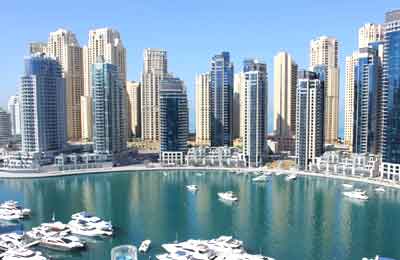
Dubai’s real estate 'resilient' despite headwinds
DUBAI, January 20, 2016
Despite headwinds, opportunities exist in Dubai’s real estate market in 2016, according to Deloitte Corporate Finance (regulated by the Dubai Financial Services Authority) in its second annual Real Estate Predictions Report for Dubai.
The report provides an economic overview and review of Dubai’s residential, hospitality, office and retail markets in 2015 and also examines the latest trends and developments and what lies ahead for 2016.
“Over the past 13 years Dubai has experienced development on a scale and to a standard like no other real estate market globally. Along with other regional and international markets, it has suffered the effects of the global financial crisis,” explained Robin Williamson, managing director, Deloitte Corporate Finance.
“Today, it is now maturing and feeling the effects of various market drivers whilst demonstrating strong resilience in certain sectors,” he stated.
On Dubai’s residential market, Deloitte said whilst published pipeline forecasts estimate that some 40,000 units will get delivered this year, consultations with key developers suggest that a more realistic number will be approximately 10,000 units.
Last year saw average residential sales prices across the UAE emirate decline by 10 per cent and so it is predicted that average residential prices will decrease further in 2016, reflecting a transition to a more mature market.
Whilst there may be a softening in residential rental prices in some submarkets, this softening won’t be to the same degree of recent declines in residential sales prices, said the report.
On the hospitality sector, Deloitte said the occupancy levels at around 70 per cent to 75 per cent are likely to represent the “new norm” in Dubai’s hospitality market this year compared to 77.5 per cent in 2015.
As operators compete for occupancy, it is expected that Average Daily Rates (ADRs) will soften further, which should encourage growth in visitor volumes required to support the investment in tourism infrastructure.
"Serviced apartments are likely to be an area of focus in 2016, driven by key source market trends, growing visitor demand for longer average lengths of stay and better value accommodation," stated Williamson.
Planned capacity increase at Dubai’s Airports to approximately 97 million in 2016 will present more opportunities to capitalise on hospitality demand from transit and destination visitor growth, he added.
On the office sector, Deloitte said the rental growth will be slow in some submarkets as a result of supply growth and the power of negotiation will, in general, shift from landlords to tenants in 2016.
There will be a trend towards more mixed use office led developments and a greater allocation of space to amenities, which will enable schemes to differentiate against competition as well as a strategy for developers to diversify risk and generate more robust cash flows, said the expert.
Given the shortage of high quality office space in Dubai, some companies will be more amenable to leasing additional space than is required at present in order to accommodate future expansion, with a view to subletting surplus space in the short term, it added.
On the retail sector, Deloitte said there will be a further moderation in retail sales growth in 2016 against a strong dollar and slowing demand from international source markets such as Russia, China and parts of Europe.
Retail rental growth will be relatively flat in 2016, with the exception of super prime malls, and some secondary malls will need to incentivise the major retail groups to retain brands, revealed Williamson.
According to him, the food and beverage (F&B) retail will go from strength to strength in 2016 driven by greater brand penetration and expansion.
It is envisaged that there will be good prospects for fashion retail following the successful completion of the initial phase of D3 Design District, noted Williamson.
“Despite the decline in average residential sales prices in Dubai during 2015, price growth over the last four years reflects a compound annual growth rate of 11.6 per cent, which outperforms other leading global cities such as London, Paris and Singapore,” he added.-TradeArabia News Service







